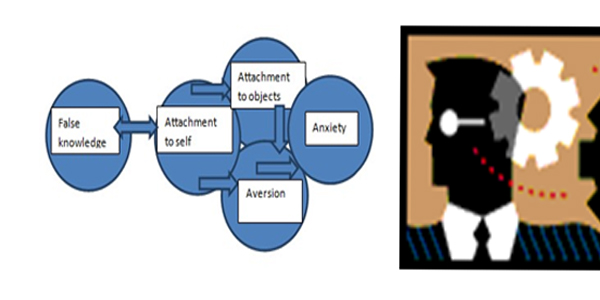Home  Books& E-Books
Books& E-Books  Art of Living Successfully
Art of Living Successfully  Contents, Sample Tip
Contents, Sample Tip
Contents in Brief
Introduction
Blissful Living
Annexures
False Knowledge Is Root Cause of Unhappiness
False knowledge is assumption of short-term effect as long-term; unclear body and mind as clear; pleasure as happiness and intelligence, instead of Pure Consciousness, as the essence of self. This is due to ego. False knowledge is due to laziness (Tamas) which prevents acquisition of true knowledge. By nature, senses are attracted towards objects which give pleasure. Identification of self with the body and senses causes attachment to pleasure. Such a person is overpowered (Moha) by the desire for pleasure. Pleasure is short-lived. Often it results in long-term unhappiness. Every effort to achieve pleasure does not become successful. The failure is often due to false knowledge or ignorance. Then frustration develops anger (fight) or escapism (flight). The person tends to pick up a fight or escapes to alcoholism or a bad habit. He is blind to reason, unable to keep the mind cool and learn from the failure. It is better to substitute a desire than to suppress it. Stronger the attachment more is the frustration on denial of pleasure or fear of likely denial. Resulting anger or anxiety overpowers. Even the wise are afraid of death. They fear for the loss of the pleasure they are used to.
False knowledge (Avidya) is more due to Adapted Child ego than due to Natural Child ego. Selfishness (Asmita) is more due to Critical Parent ego than due to Nurturing Parent ego. Both are sources of unhappiness. Kriya Yoga for happiness minimises both. ‘Our happiness depends on wisdom all the way’ – Sophocles.
Cause and Effect Relation of Five Types of Unhappiness

© Copyright P.K. Ratho
All right reserved. Terms